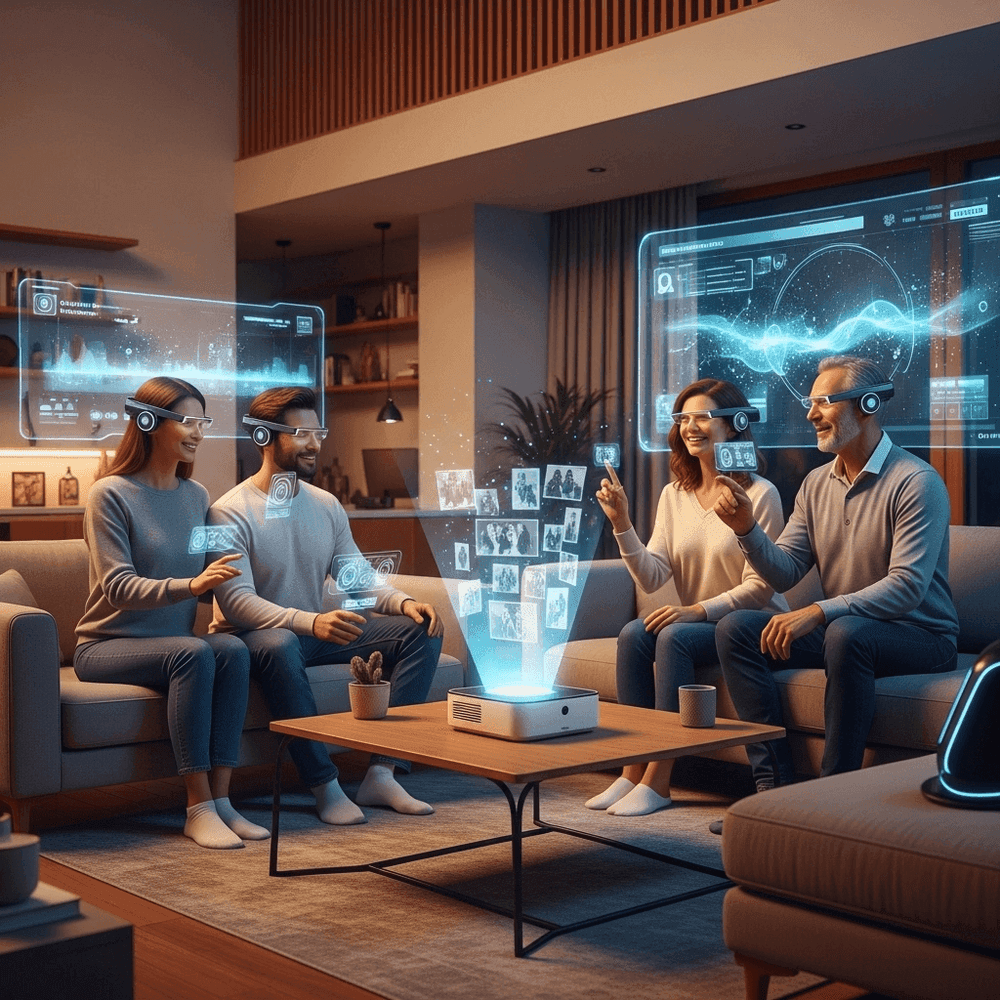What will communication with AI be like in 2027

Despite the tremendous pace of development, modern artificial intelligence is reminiscent of personal computers of the late 70s (we understand that these are large language models, neural networks, and that AGI still needs to be achieved, but the term has become established). At that time, personal computers had already appeared, but a huge number of people continued to perform tasks in the usual way — through piles of papers and reports. Only 10–20 years later, technologies were able to radically change the world. Today's talk that AI will change everything in three years is an illusion. It will take a change of one or two generations before we enter a truly new world.
However, it is already obvious that the gap between those who use AI in work and personal life and those who live in the old way will only increase. Those who find the golden mean will benefit: they will not completely replace their own thinking with artificial intelligence in order to prevent the brain from atrophying, but will use it as a personal advisor. AI will become a tool to facilitate routine tasks, an assistant in business, and a kind of "mirror" for making informed decisions.
We will focus on the consumer segment, since business tasks or specialized requests, for example, for programmers, are a separate area. The mass consumer is already used to being able to ask any question and get an answer.
Key changes in the consumer segment:
The gradual fading of traditional search engines. Although direct traffic from AI platforms is still inferior to search engines, it is growing rapidly. Search engines themselves are actively implementing AI Overviews, which provide the user with ready-made information, which reduces the need to go to websites. According to some forecasts, by 2026, up to 80% of information requests in Google will be accompanied by the generation of AI answers.
Transformation of sites into "connectors" and the rise of AI agents. The site will no longer be just a showcase where a person searches for information himself. It will turn into a connector with perfectly structured data so that AI can instantly receive the necessary information. By 2027, AI assistants will act proactively: analyzing the user's calendar, mail, and habits, they will be able to anticipate their needs. For example, the assistant will offer to order a taxi to the airport, knowing about the upcoming flight, or book a table in a restaurant for an anniversary that the user might have forgotten.
Shifting the focus of loyalty. Businesses will have to build loyalty not so much with the end client as with their AI assistant. These assistants will become "paying clients," representing the interests of people who do not want to waste time on calls and выяснение details.
The growing value of human interaction
Paradoxically, against the backdrop of the development of chatbots and automation, the value of live human interaction will increase many times over. Elite products and services will be those that involve interaction with a person. There will be a partial departure from superficial communication in social networks towards real, deep connections, since AI will take over the routine and leave the human to the human.
Evolution of user experience
The current interaction with AI through text commands is reminiscent of working with computer terminals of the past. In the future, this will change. Interaction with AI will no longer be just text-based and will become multimodal. We will communicate with it by voice, send images and videos, and it will be able to control our computer, performing tasks in regular programs. This will make the technology truly invisible and integrated into everyday life. The user experience will become more intuitive and visual: instead of receiving code or text, a person will be able to see the result of their requests in real time and make edits directly.
New challenges and ethical questions
Such deep integration of AI will raise new questions about data privacy, manipulation of choice, and loss of basic skills. Society will have to find a balance between the convenience that technology offers and maintaining the autonomy of human thinking. Experts are already warning about the risks associated with algorithmic bias and the possibility of their uncontrolled development.
In a world where AI is becoming increasingly pervasive, the key issues are trust and maintaining control. This is where Riser sees its mission. We are creating not just an assistant, but a reliable partner that you can trust to solve a variety of tasks. After all, even within leading companies such as OpenAI (the creator of ChatGPT), there are disagreements about AI safety. Some former employees have expressed concern that companies are not paying enough attention to the risks associated with technology development in the race for leadership.
The pinnacle of this approach will be the creation of "family AI" — an ecosystem where all information is stored and processed exclusively on your territory, ensuring digital sovereignty. Riser will provide the best external solution and equipment for this.
Riser is not just a technology. This is your personal guide to a future built on trust, where the best user experience is not a compromise, but the only standard.